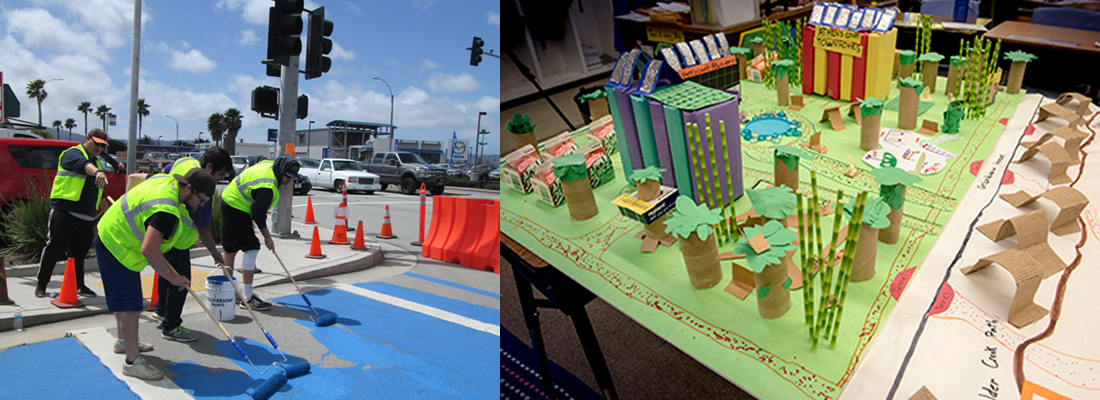Resources to Support Community Engaged Research
— Tori Derr —
Campus Compact
Campus Compact is a national coalition of colleges and universities committed to building democracy through civic education and community development.
University memberships provide access to webinars, workshops, and conferences that can support inclusive and engaged teaching and research.
The Association of American Colleges and Universities (AAC&U) also supports community engagement through a variety of resources, webinars, and conferences.
They link this work to high impact practices that promote diversity and democracy. See for example: Linking High Impact Learning with High-Impact Community Engagement.
See also: Embedding Community Engaged Research into Courses.
Association of American Colleges and Universities
The Association of American Colleges and Universities (AAC&U) also supports community engagement through a variety of resources, webinars, and conferences.
They link this work to high impact practices that promote diversity and democracy. See for example: Linking High Impact Learning with High-Impact Community Engagement.
See also: Embedding Community Engaged Research into Courses.
United Nations Economic, Social and Cultural Organization – UNESCO
UNESCO’s Community Engagement: A Critical Guide for Practitioners, by Mae Shaw and Jim Crowther, is a guide for community engagement that includes a theoretical framework for creating a successful curriculum. The guide includes interesting charts that represent pedagogical purposes, i.e.: activism, participation, liberation, and democratization, and a clear path to integrating critical community engagement into a curriculum.
Resources to Promote Children and Youth Participation
CERI: Children’s Environmental Right’s Initiative
The Children’s Environmental Rights Initiative is a collaborative group of activists, technical experts, policymakers, and young people from around the world who work together to ensure children’s rights to a safe and healthy environment. They have worked in collaboration with UNICEF to advance the Declaration of Children, Youth, and Climate Action, adopted in 2019.
UNICEF: The United Nations Children’s Fund
UNICEF’s Child Friendly Cities Initiative began in 1996 as a means to support municipal governments in realizing the rights of children at a local level, drawing on the UN Convention on the Rights of the Child as its guiding framework.
Today, UNICEF’s Child Friendly Cities Initiative is also a network of governments, private sector, academics, and children who wish to make their cities more “child-friendly.”
The initiative emerged from the United Nations Conference on Human Settlements (Habitat II) which sought to create livable cities for all.
The Habitat II conference declared that “the wellbeing of children is the ultimate indicator of a healthy habitat, a democratic society, and of good governance.”
The Growing Up in Cities program of the United Nations Educational, Scientific, and Cultural Organization (UNESCO) arose of of the environmental movement in the 1970s and Kevin Lynch’s work to create favorable social relationships with the human environment.
UN-Habitat, Agenda 21, and the Sendai Framework for Disaster Risk Reduction all have provisions for youth engagement in decision making related to the environment.
In 2019, the Declaration on Children, Youth and Climate Action was adopted and reflects priorities identified by children and youth throughout the world, including meaningful participation in climate-related decision making.
United Nations Habitat
United Nations Sendai Framework for Disaster Risk
United Nations. (2015). Sendai Framework for Disaster Risk Reduction. UNISDR: United Nations Office for Disaster Risk Reduction.
United Nations, Sustainable Development Platform
United Nations Sustainable Development platform: Major groups.

